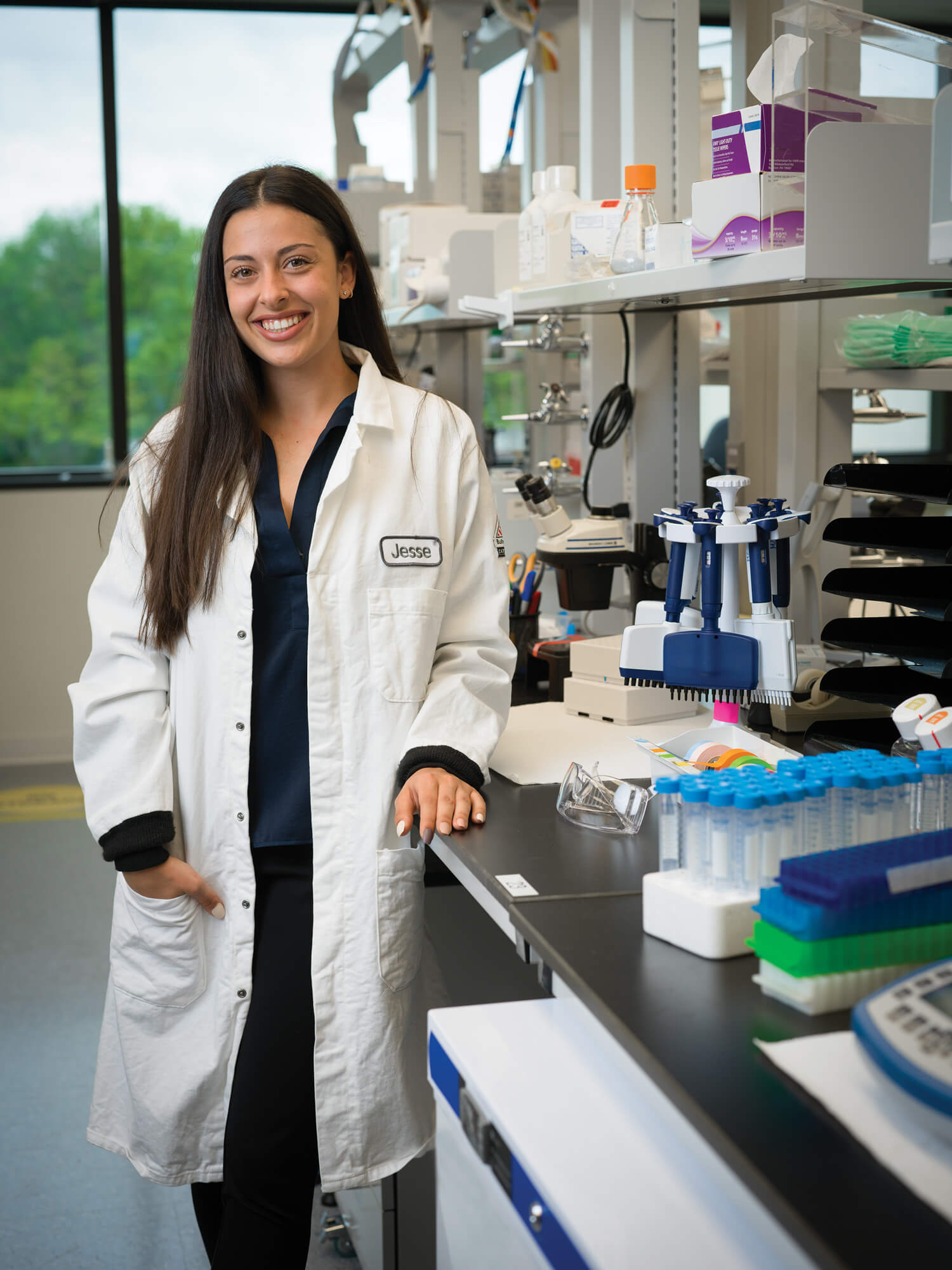
Launchpad: Jesse Bragger
The January 2021 graduate is an associate research scientist at Bristol Myers Squibb.
Cardiovascular diseases are the leading cause of death globally, taking nearly 18 million lives annually, according to the World Health Organization.
At Bristol Myers Squibb, Jesse Bragger ’21 is doing early drug discovery research that could one day help cure or treat a variety of cardiomyopathies. In her lab, she tests novel pharmacological compounds to determine their safety and efficacy. “It’s one of the early steps in the process before a drug can potentially reach the clinical level,” says Bragger.
A graduate of the University’s Honors School, Bragger majored in biology with a concentration in molecular cell physiology and a minor in statistics. “I wouldn’t be working in the role I am now if it wasn’t for my experiences at Monmouth,” she says.
Why I Chose Monmouth
I knew I’d get hands-on research experience as an undergraduate, and the scholarship money I received made Monmouth the most affordable option. Also, I was excited by the state-of-the-art science building that was being completed; I see a lot of similarities between that building and where I work now.
How I Got Here
The experience I got doing three-and-a-half years of research with Professor Megan Phifer-Rixey, which included working on a global study that was published in Science, opened the door. When I interviewed at BMS, they said it sounded like I had completed a grad school program.
My Career Goal
I want to advance within BMS and continue my research, and I still want to attend graduate school. Science is constantly changing, and I always want to keep learning.